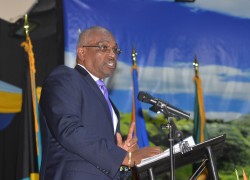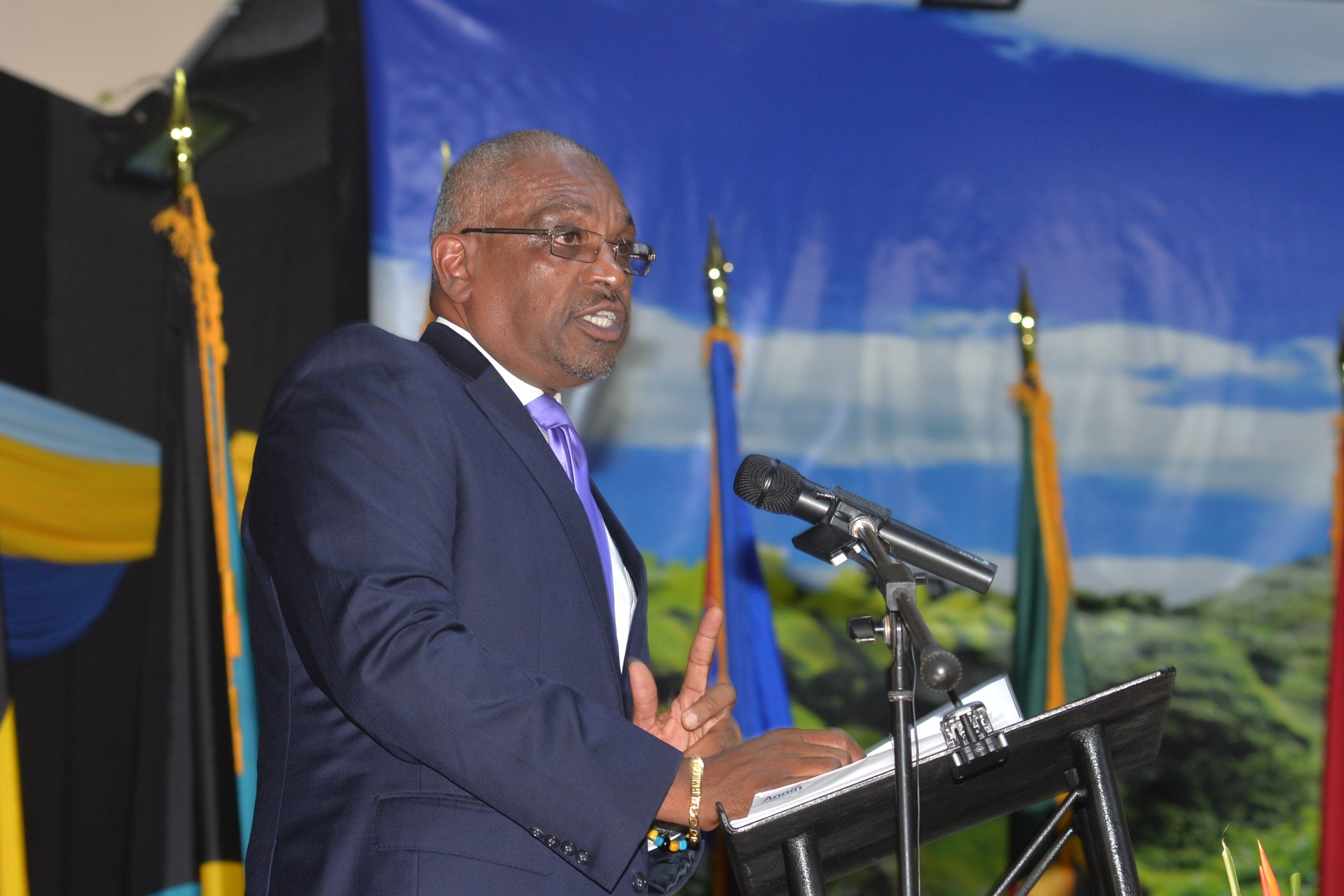
 In his inaugural address to the CARICOM body at the 38th Regular Meeting of the Conference Heads of Government of The Caribbean yesterday afternoon, Prime Minister Dr. Hubert Minnis urged The Bahamas’ regional partners to be wary of the dangers of climate change and its impact on the region.
In his inaugural address to the CARICOM body at the 38th Regular Meeting of the Conference Heads of Government of The Caribbean yesterday afternoon, Prime Minister Dr. Hubert Minnis urged The Bahamas’ regional partners to be wary of the dangers of climate change and its impact on the region.
Dr. Minnis in his address said the neighbouring island nations must embrace renewable energy and revealed that the government plans to launch an “ambitious” solar programme within the next five years.
“Our people need us to act together to harness the tremendous mutual potential of the region, while facing shared challenges. Our region is dependent upon the resources of the sea, the blessings of the trade winds and year-round ambient temperatures,” Dr. Minnis said.
“Accordingly, we must continue to embrace the UN Climate protocols because our livelihoods and existence demand regional and global action to address climate change generally, and threats such as rising sea levels, depleted fish stocks, and the frequency and intensity of hurricanes.
“We should be diligent in putting into action our plans for renewable energy, and energy efficiency from the sun, the wind, the oceans, rivers and lakes. It is my government’s intention to launch an ambitious solarization programme in The Bahamas over the next five years.
“In addition to our populations, our region hosts just under 30 million stopover visitors annually. As both of these numbers increase, we will need to increase the production of power generation, electricity and clean water. We will need to improve waste treatment and recycling. These challenges can only be met with renewable solutions. We must bring the same vigor and focused discipline to the task of economic development.”
Dr. Minnis added that countries should also embrace new empirical data as islands in the region rely heavily in on its tourism product as a vital source of income.
“We are collectively the most tourism dependent region in the world. It is in an area in which we have an acknowledged and decided global comparative advantage,” Dr. Minnis said.
“Given the collective state of our fiscal positions and levels of unemployment, we must become more focused on finding ways to extract much more value from that area of our economies.
“It is time that we create marketing and product improvement programmes based on facts instead of opinions or gut instincts, which are often proven wrong in the face of new knowledge gleaned from data. By example, we should better appreciate the stored value that is waiting to be unleashed by the proper analysis of multi-year data from immigration cards and from the development of tourism satellite accounts.
“Tourism officials in The Bahamas are increasingly astonished by the information that such analyses are telling us and the refreshing guidance that it is providing. Additionally, we must more aggressively address perennial issues like regional air and sea transportation to make it easier and more affordable to move people and goods around the Caribbean, including citizens and residents of the region and visitors.”
Last month the Ministry of Foreign Affairs expressed The Bahamas’ concern regarding the announced withdrawal of the United States from the Paris Agreement on climate change.
The ministry noted that The Bahamas remains “committed” to the climate accord.
In May 2015, then Prime Minister Perry Christie told Parliament that with 80 per cent of The Bahamas’ land mass within one metre of sea level, climate change was a growing threat.


